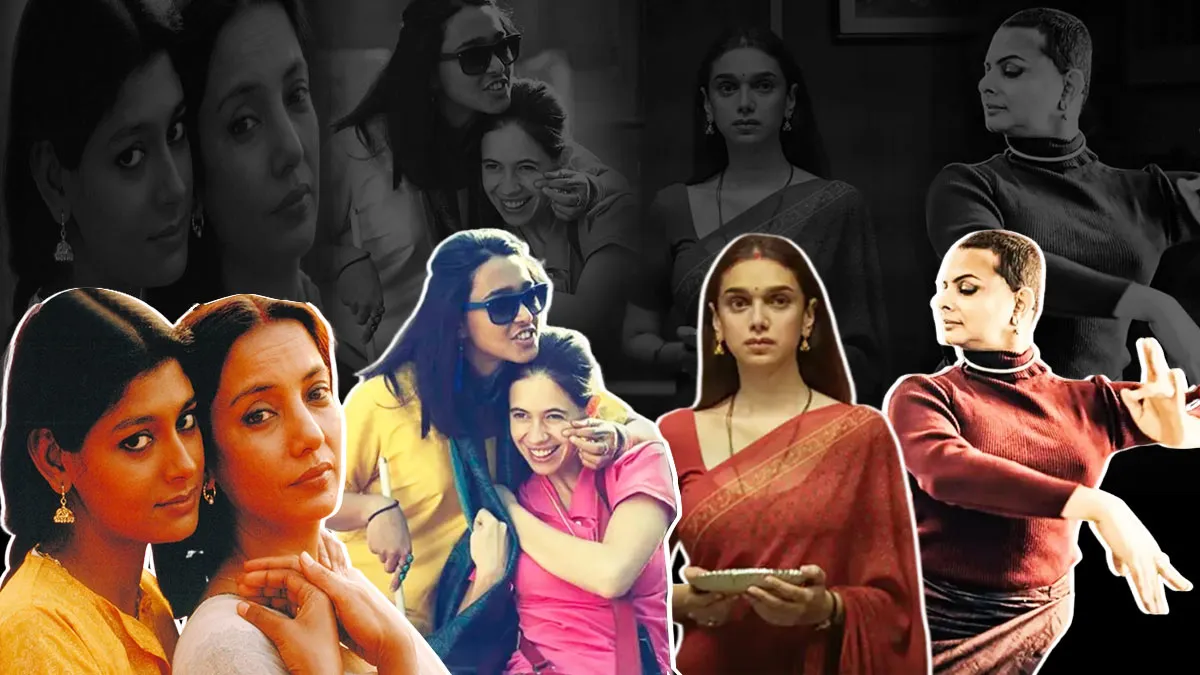
For years, LGBTQ+ characters in Indian films were limited to offensive clichés. Gay men were often shown as overly flamboyant or comic relief, such as in Pyaar Kiya To Darna Kya or the roles played by Bobby Darling. Lesbian characters were rarely given depth and often included only to cater to the male gaze, like in Girlfriend, where emotional connection was entirely overlooked.
But things are changing. As Bob Dylan said, "the times are certainly a-changing." Films like Margarita with a Straw have brought thoughtful stories to the screen, exploring sexuality within the differently-abled community. Kapoor & Sons portrayed a more realistic family dynamic, highlighting the emotional challenges faced when a mother learns about her son's sexuality. These films go beyond clichés and present fully developed queer characters, offering stories grounded in truth, emotion, and complexity.
Deepa Mehta’s Fire was a groundbreaking film that addressed female desire and intimacy in a conservative Indian setting. It follows two sisters-in-law trapped in loveless marriages who find emotional and physical connection in each other. The film boldly questioned traditional roles of women and sparked strong reactions by showing their right to love and fulfilment. Radha’s powerful line, “she was dead without desires”, summed up the central message about the need for emotional and physical agency in women’s lives.
Directed by the late Rituparno Ghosh, Chitrangada explores gender identity, love, and self-acceptance. It tells the story of Rudra, a choreographer who falls in love with Partho. Their dream to adopt a child is blocked by laws that don’t recognise same-sex couples as families. Rudra considers gender-affirming surgery to meet legal norms, using dance to process the emotional journey. Ghosh’s sensitive storytelling offers a rare, respectful look at complex themes of identity.
Starring Kalki Koechlin, Margarita with a Straw is a moving story of Laila, a young woman with cerebral palsy, exploring her sexuality and independence. The film highlights how social attitudes are often more limiting than disability itself. While praised for its honest approach, the film also faced criticism for casting a non-disabled actor in the lead role.
Part of Netflix’s Ajeeb Daastaans, Geeli Puchhi tells the story of Bharti, a Dalit factory worker, and Priya, a Brahmin woman. Their bond unfolds amid caste and class divisions, exploring both connection and exclusion. The film effectively highlights how social hierarchies can shape and often erase personal identities.
Sheer Qorma follows Sitara and Farida, two queer women facing family rejection while staying true to their love. With powerful performances by Shabana Azmi, Divya Dutta, and Swara Bhasker, the film handles queer identity with warmth and emotional depth, set against vibrant Indian backdrops.
Don't Miss: Rekha's Classic Musical Drama Umrao Jaan Returns to Theatres in 4K: Release Date & Where to Watch
Directed by Hansal Mehta, Aligarh is based on the real story of Professor Ramchandra Siras, who was suspended after his sexuality was outed without his consent. Manoj Bajpayee’s performance captures the quiet strength of a man wronged by society. The film highlights the importance of privacy, dignity, and human rights.
Inspired by Dominic d’Souza’s life, Onir’s My Brother Nikhil was one of the first Indian films to speak openly about HIV/AIDS and homosexuality. It highlights the stigma, isolation, and emotional impact of living with both, especially in a society reluctant to talk about them.
Anup Singh’s Qissa, starring Irrfan Khan and Tillotama Shome, examines how a father’s obsession with having a son distorts lives post-Partition. It touches on gender identity, patriarchy, and sexuality, showing how societal expectations can lead to deep emotional damage. Though not always listed under LGBTQ+ cinema, its themes are powerful and relevant.
Don't Miss: Bollywood OTT Releases in June 2025: 7 Movies and Web Series to Stream on Netflix, Prime Video, and More
Keep reading Herzindagi for more such stories.
Our aim is to provide accurate, safe and expert verified information through our articles and social media handles. The remedies, advice and tips mentioned here are for general information only. Please consult your expert before trying any kind of health, beauty, life hacks or astrology related tips. For any feedback or complaint, contact us at compliant_gro@jagrannewmedia.com.